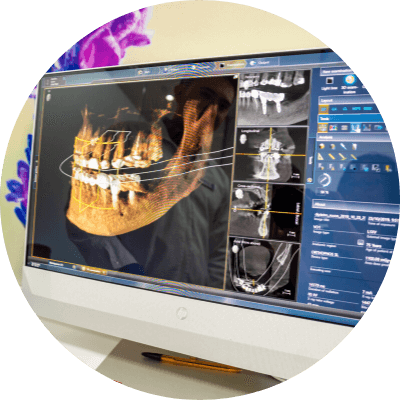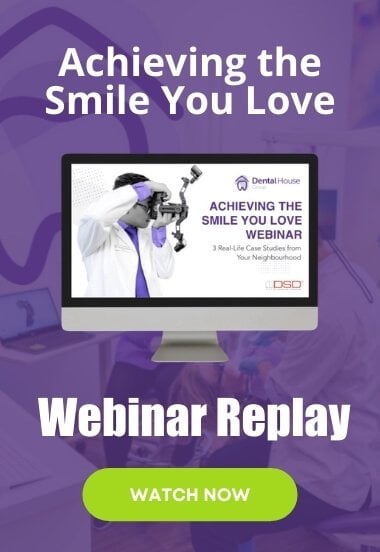The FDI World Dental Federation: Positive Developments in Oral Health

The challenges of 2021 pushed FDI to innovate and strengthen its governance and mechanisms to ensure many new projects were launched, including its Vision 2030: Delivering Optimal Oral Health for All report, and granting the International Dental Journal as an open-access publication. World Oral Health Day unveiled the World Health Organisation’s landmark resolution draft for its global oral health strategy which includes a progress-tracking framework with measurable targets to be met by the next decade.
The FDI is a federation of national dental associations and organisations amounting to 1.7 million individuals as the representative body of the profession of dentistry worldwide. It comprises around 200 national member dental associations and specialist groups across 130 countries. Since the turn of the last century, the Fédération Dentaire Internationale has stimulated and facilitated the exchange of information across all borders in its focus of achieving optimal oral health for all people. It was in that first year, 1900, that it resolved that in every school, teeth should be inspected every six months.
Formed in Paris, the FDI is second only to the Red Cross in terms of the oldest international medical organisation in the world.
To this point this may all seem a big deal only if you’re a dentist. Like the Oscars; all great, good to know, and essentially nothing at all to do with me.
You do however, as an individual, benefit greatly from the FDI in ways now so fundamental they remain largely unnoticed.
Without the influence and scope of the FDI, there would still be three dental notations (tooth numbering systems) as a dental ‘language’; the first of which was developed in 1861. Known as the Zsigmondy-Palmer system, or the Palmer notation, the next universal coding practice was proposed by German dentist Julius Parreidt in 1882. Though there are differences, both are a schematic division of the mouth into quadrants, with a number identifying the position from the midline, another for adult teeth (1-8) and letters A to E to determine milk teeth.
The UK adopted the Palmer notation, the ADA took up the Universal Numbering System in 1968, and neither system complied with the requirements set by the Fédération Dentaire Internationale. The organisation was prompted to introduce its own two-digit system in 1970 that not only provided clear definition between the each side of the mouth and upper and lower dental arches, but was also easy to code.
The year 2000 revealed the real problem with the Palmer notation is that it was extremely difficult to convert to HTML, necessary of course in terms of software, the internet and therefore life as we know it, really.
The Fédération Dentaire Internationale standardised the map of your mouth. For more than a century it has continued its work in prioritising, educating and disseminating policies and resources that nurture and enable optimal oral health on a world scale. In 2021, FDI Member States established an inter-governmental negotiating body to develop a legislated WHO treaty for 2024 as an instrument for pandemic preparedness and response. FDI members and partners are key in delivering annual World Oral Health Day campaigns, the results of which are recognised through its WOHD Awards. It’s heartening to see 2022’s “Most Educational Activity” and “Best Media Campaign” won by North Macedonia and Costa Rican clinics respectively. The Sudanese Association of Dental Students should certainly be proud of its “Best Social Media Campaign” status.

The Fédération Dentaire Internationale, or FDI World Dental Federation, defines oral health as multi-faceted. It includes the ability to speak, smile, smell, taste, touch, chew, swallow; and extends to the capacity to confidently convey a range of emotions through facial expressions without pain, discomfort and disease of the craniofacial complex.
That’s pretty complex. And very true. We forget how impossible a smile is for some – anywhere on the planet. We know the heart of that; we even know the science. When facial muscles contract, chemical signals stimulate the reward system in the brain and increase endorphin levels. The simple act of smiling even without any emotional input, triggers the same physiological and psychological response – which is why ‘fake it before you make it’ actually works. Even if achieved via dental implants, veneers, and other assorted cosmetic extras.
Not being able to experience that physical and automatic response of smiling to achieve some lightness of being, is a life more defined as an existence. In its resolution 66/281 of 12 July 2012, the General Assembly of the United Nations proclaimed 20 March the International Day of Happiness in recognition of the significance of happiness and wellbeing as universal goals of humans.
I’m not sure how well we’ve done with that over the last decade…
The FDI World Dental Federation has had official alliance with the World Health Organisation since the 1960s, which has remained crucial in the advocacy of global wellbeing.
With thanks to the Fédération Dentaire Internationale, since 2004 oral health has been recognised as a fundamental human right. 2019 brought the first-ever commitment from world leaders to strengthen oral health via the United Nations Political Declaration on Universal Health Coverage in its pursuit of making oral health universally accessible and affordable.
That would be something to smile about.
Note: All content and media on the Sunbury Dental House website and social media channels are created and published online for informational purposes only. It is not intended to be a substitute for professional medical advice and should not be relied on as health or personal advice.
Services Mentioned
Related Articles
Some Sweet News For Diabetes Sufferers With Gum Disease
Diabetes type 2 is a scourge for sufferers and those with it know that well. Here is some sweet news for diabetes sufferers with gum disease. A new study performed at the University of Buffalo School of Dental Medicine made some helpful findings in this regard. The...
Bruxism In Children: Is It Influenced By Screen Time And Sugar?
Children gnashing & grinding their teeth asleep in bruxism – a scene from a horror movie. Overstimulation of sensitive minds…
Let The New Year Bring New Commitment To Your Oral Care
If you can be inspired to make one new year’s resolution this year let it be for your dental health. Let the New Year bring new commitment to your oral care in 2024 and beyond. This is no mere dentist’s selfish wish but a call for an understanding about just how...
Having A Smart Mouthguard Is A Life Changing Game Changer
In early 2023, the top league of professional players in Australasia, the NRL, along with Football Australia, acknowledged before a Senate committee the link between head trauma and serious neurodegenerative disease. Representatives from the major Australian contact...














